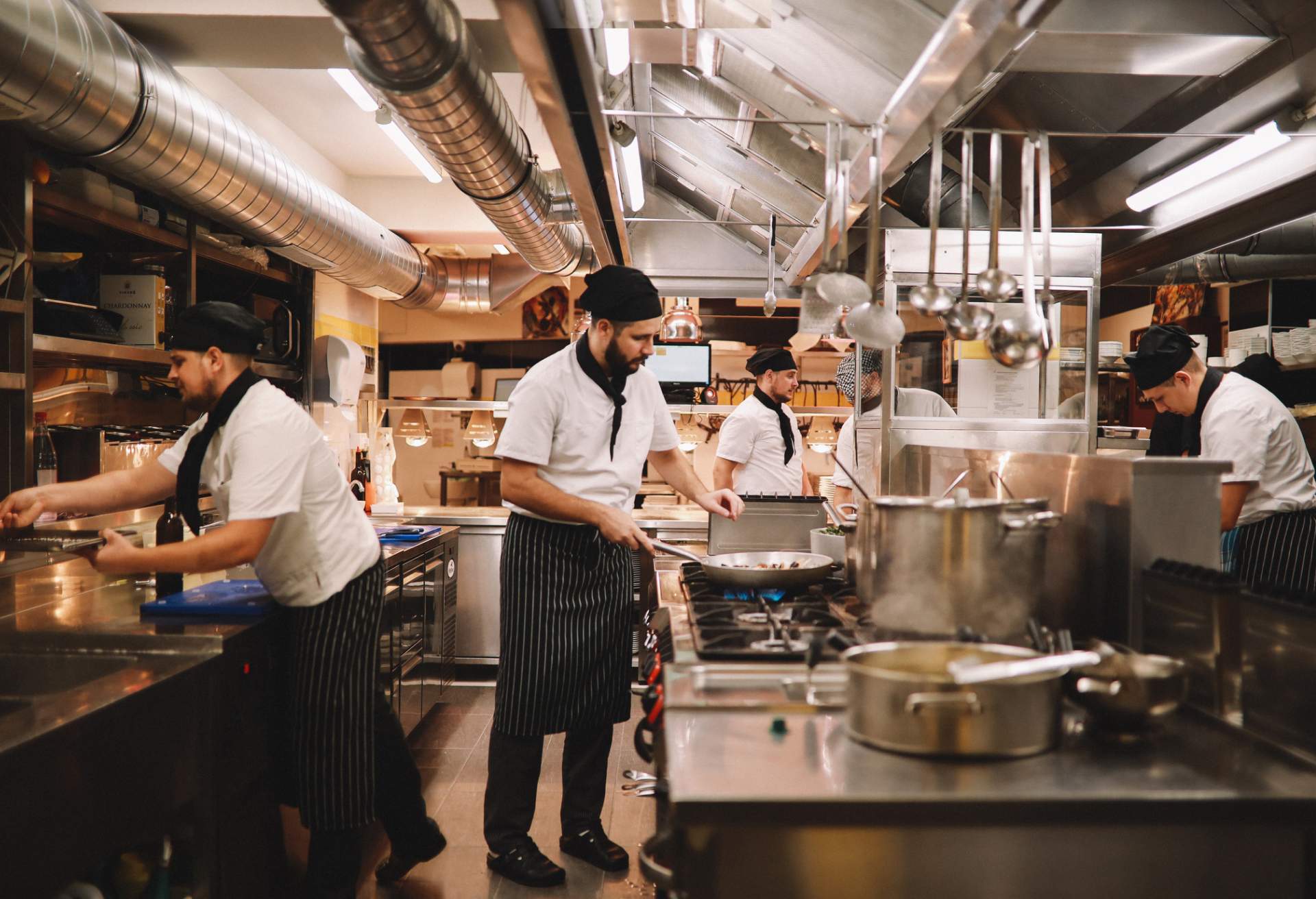The restaurant industry is a dynamic and bustling sector that offers a wide range of job opportunities. Whether you are looking for an entry-level position or aiming for a management role, restaurant jobs provide a diverse and rewarding career path. Here’s a detailed guide to help you understand the various roles, skills required, and career growth prospects in the restaurant industry.
Types of Restaurant Jobs
-
Front of House (FOH) Positions:
- Host/Hostess: The first point of contact for customers, responsible for greeting and seating guests, managing reservations, and ensuring a positive dining experience.
- Server/Waitstaff: Taking orders, serving food and beverages, and providing excellent customer service. Servers must be knowledgeable about the menu and capable of handling customer inquiries and complaints.
- Bartender: Preparing and serving drinks, engaging with customers, and maintaining a clean and organized bar area. Bartenders often create and suggest cocktails and must comply with local alcohol laws.
- Barista: Specializing in preparing and serving coffee and espresso-based drinks, baristas must be skilled in various brewing techniques and customer service.
-
Back of House (BOH) Positions:
- Chef/Cook: Preparing meals according to recipes and standards, maintaining a clean and organized kitchen, and ensuring food safety. Chefs may specialize in specific types of cuisine or kitchen stations.
- Sous Chef: Assisting the head chef in menu planning, kitchen management, and overseeing food preparation. Sous chefs often step in to manage the kitchen in the head chef's absence.
- Line Cook: Working at specific stations within the kitchen (e.g., grill, sauté, pastry), line cooks are responsible for preparing and cooking food items as ordered.
- Prep Cook: Preparing ingredients for recipes, including chopping vegetables, marinating meats, and portioning out ingredients. Prep cooks ensure that the kitchen runs smoothly by keeping ingredients ready for use.
-
Management and Administrative Positions:
- Restaurant Manager: Overseeing daily operations, managing staff, handling customer complaints, and ensuring financial performance. Managers must balance administrative duties with hands-on problem-solving.
- Assistant Manager: Supporting the restaurant manager in operational tasks, staff management, and customer service. Assistant managers often focus on specific areas such as inventory or scheduling.
- Kitchen Manager: Overseeing kitchen operations, including food preparation, staff supervision, inventory management, and compliance with health and safety regulations.
- Event Coordinator: Planning and managing special events, including private parties, corporate gatherings, and catering services. Event coordinators work closely with clients and the restaurant team to ensure successful events.
Skills and Qualifications
-
Customer Service: Providing excellent customer service is essential for FOH positions. This includes being friendly, attentive, and able to handle complaints professionally.
-
Teamwork: Restaurant work is highly collaborative. Both FOH and BOH staff must work together seamlessly to ensure a smooth operation and positive customer experience.
-
Time Management: The ability to manage time effectively and prioritize tasks is crucial in a fast-paced restaurant environment.
-
Attention to Detail: Accuracy in taking orders, preparing food, and maintaining a clean workspace is vital for maintaining quality and safety standards.
-
Culinary Skills: For kitchen roles, strong culinary skills and knowledge of cooking techniques, food safety, and kitchen equipment are essential.
-
Communication: Clear and effective communication is important for coordinating tasks, providing instructions, and ensuring customer satisfaction.
-
Problem-Solving: The ability to quickly and effectively resolve issues, whether with customers or within the kitchen, is key to maintaining smooth operations.

Working Conditions
-
Environment: Restaurants can be noisy and hectic, especially during peak hours. Staff must be able to work efficiently under pressure.
-
Hours: Many restaurant jobs require working evenings, weekends, and holidays. Shifts can be long and physically demanding.
-
Safety: Following health and safety regulations is crucial to prevent accidents and ensure a safe environment for both staff and customers.
Career Growth and Opportunities
-
Advancement: Entry-level positions can lead to more advanced roles with experience and additional training. For example, a server can become a head server, then a shift supervisor, and eventually a restaurant manager.
-
Skill Development: Many restaurants offer training programs and opportunities for employees to learn new skills, such as culinary techniques or management practices.
-
Industry Demand: The restaurant industry is large and varied, offering numerous opportunities for employment across different types of establishments, from casual dining to fine dining.
Benefits and Challenges
Benefits:
- Variety: The restaurant industry offers a wide range of roles and environments, catering to different interests and skill sets.
- Social Interaction: For those who enjoy working with people, restaurant jobs provide ample opportunities for social interaction.
- Tips and Bonuses: Many FOH positions offer the potential to earn tips, which can significantly boost income.
Challenges:
- Physical Demands: Long hours on your feet and physical tasks can be tiring.
- Stressful Environment: The fast-paced nature of the restaurant industry can be stressful, especially during busy times.
- Irregular Hours: Working evenings, weekends, and holidays can be challenging for maintaining a work-life balance.















